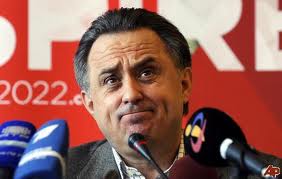By Paul Nicholson
March 18 – The Russian ban on selling alcohol in stadiums looks to have been lifted, with drinks companies saying they have bought licenses to sell beer in stadiums from 2018, in time for the FIFA World Cup 2018.
General Director of ‘Kriljev Sovetov’ Denis Maslov said that drinks companies have already bought contracts from the Russian Football Federation (RFF) to sell beer.
Opposition to the sale of beer in stadiums has come from the department of health who were afraid of the social consequences and that it would lead to increased alcoholism in Russia.
But for FIFA, which has a beer sponsor as one of its major World Cup partners, the sale of beer is considered part of the social side of football.
In January 2012, FIFA president Joseph Blatter and UEFA president Michel Platini visited Russia and met then Prime Minister Vladimir Putin. During the discussions, both presidents suggested that Putin removes the ban for sale of beer in the stadiums. Putin said he would think about it.
Russia’s principal doctor Genadij Onicenko and the head of Russsia’s Ministry of Health and Social Services, Tatjana Golikova, asked Putin not to change the law, because in their opinion this would increase alcoholism.
Maslov said: “In 2018 during the World Cup we will all be drinking beer at the stadiums. Beer producers have already bought contracts from the RFF. We are afraid of our own people. In Poland, beer is allowed in the stadiums and in Ukraine it is also allowed. Most important is to keep the limits: two-three glasses of beer in the stadium is nothing bad.”
Mutko explains the 50-year quote
The Russian world cup winning project looked to have a long term feel after sports minister Vitaly Mutko (pictured) revealed that in a conversation with the president he said it will take 50 years for Russia to become world champions.
Mutko has since clarified his comments, saying that the conversation with the president was in 2005 and since then development resource has been allocated to prepare a team for 2018 that will be competitive at the World Cup.
“Unfortunately, your colleagues (journalists) love to take out my words out of context. Lets start with the fact, that the meeting with Russia’s president Vladimir Putin took place eight years ago – in 2005, when I had only just become the head of Russia’s Football Federation,” said Mutko.
“At that time the football infrastructure in our country was in total decline. Catastrophically, there wasn’t enough either natural nor artificial fields, children had nowhere to practice. Therefore, when asked by Vladimir Vladimirovich, when we will win the World Cup, I could not promise him medals in the near future. I understood what titanic work it is to bring our football to the adequate level. I would say, that my number of 50 years, became the catalyst. Because new life for our football started precisely after that meeting.”
The RFF has adopted a forma programme, ‘Strategy of football development in Russian Federation for 2006-2016’ and the investment project ‘Lets give children a stadium’.
In 2008, the football development programme was pulled under the wing of national programme for ‘the development of the physical culture and sport for 2006-2015’. Mutko says there is no similar development programme in the world.
Since 2005, 330 new football pitches have been built and arenas opened in Sverdlovsk, Novosibirsk and Jakutija. “In Bronicach, we have built a training centre for Russia’s youth national football teams,” said Mutko.
“We have already taken football’s technical base to a new level. Now, on the doorsteps of our home World Cup 2018, we must prepare a team, which will properly represent our country in this tournament. For this, firstly, we need that the young Russian footballers have continuous game practice.
“We need as many players as possible to have the opportunity to play in Premier League matches and in international tournaments. They (the young players) can become the real masters, only if they get to the higher level and face strong rivals.”

